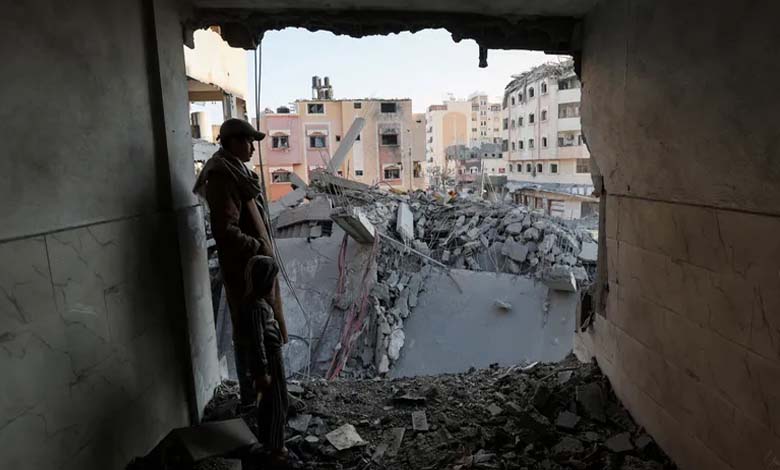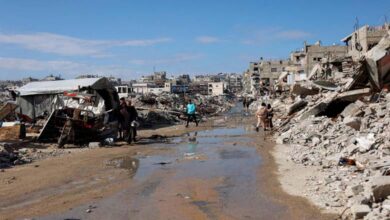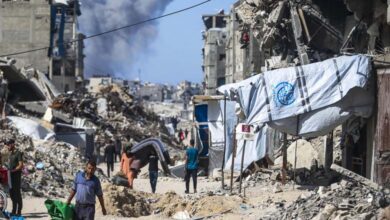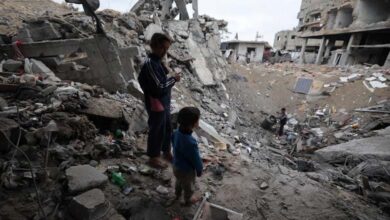Gaza Truce: U.S. Positive Signal, Israeli Flexibility and a U.N. Alarm

Steve Witkoff, President Donald Trump’s envoy to the Middle East, stated that the ongoing negotiations for a ceasefire in Gaza are “going well.”
He mentioned significant progress, while refraining from disclosing details of the proposed framework or timeline.
-
Aid in Gaza: A Struggle for Survival
-
Gaza Ceasefire Deal: Internal and Regional Pressures Shape the Limits of the Agreement
Israeli “flexibility”
The Hebrew daily Yedioth Ahronoth reported Thursday that Israeli Prime Minister Benjamin Netanyahu had instructed his negotiating team to show greater flexibility in order to reach a truce agreement with Hamas, amid growing signs of progress in the talks.
An Israeli source told the paper that, as part of a possible deal, Tel Aviv had agreed to withdraw from the Morag axis and other areas within Gaza. However, several key issues remain unresolved, foremost among them the ratio of hostages to Palestinian prisoners to be exchanged — particularly those serving life sentences.
-
2 Million Palestinians in 15% of Gaza’s Area… 36,000 People per Square Kilometer
-
Latest from Gaza: Ongoing Israeli Airstrikes and Ceasefire Negotiation Details
The source added that Hamas was rejecting the new humanitarian aid distribution mechanism that Israel is attempting to impose in the Strip, and continues to demand a full IDF withdrawal to pre-March 2, 2024 lines — a key sticking point in the negotiations.
Despite the ongoing gaps, the paper quoted Israeli officials as saying that the likelihood of reaching an agreement now outweighs the chances of failure, due to mounting pressure from international mediators.
-
Palestinian political analyst: Gaza’s humanitarian situation is catastrophic and international pressure falls short of addressing the crisis
-
Latest Gaza News: Death Creeps Westward, Israel Issues Warning to Residents of 18 Areas
UN Security Council Warning
The United Nations Security Council held an emergency session on Wednesday the 16th, at the request of Denmark, France, Greece, the United Kingdom, and Slovenia, to discuss the sharp deterioration of the humanitarian situation in Gaza amid growing global concern.
UN: Gaza in crisis
During the session, Tom Fletcher, United Nations Under-Secretary-General for Humanitarian Affairs and Emergency Relief Coordinator, warned that the situation in Gaza has reached a “humanitarian catastrophe.”
-
Gaza Latest: 31 Killed by Israeli Fire Near Aid Center
-
Gaza Latest: Evacuation Orders in the North and Humanitarian Ship Intercepted at Sea
He stressed that Israel, as the occupying power, has a legal obligation to ensure access to food and medical supplies. However:
- Food has run out, and Palestinian civilians are risking injury in attempts to obtain it.
- Five newborns are sharing a single incubator in local hospitals.
- More than 70% of essential medicines are unavailable, and child hunger has reached record levels.
- The healthcare system is collapsing due to severe shortages of fuel and supplies.
Fletcher departed from a neutral stance, stating that comments by some Israeli officials referring to starvation as a pressure tactic “could amount to a war crime.” He called for both the protection of hostages and the end of hunger, emphasizing the need to uphold international humanitarian law without compromise.
-
U.S. Proposal on Gaza on Hamas’ Table… Talk of a Possible Breakthrough
-
Gaza Foundation: Potential U.S. Funding Could Entangle Washington in Aid Chaos
Calls for accountability
In a pointed message to the Security Council, Fletcher emphasized the need to assess whether Israel is abiding by humanitarian law, saying: “Israel must be held to the same standards and laws applied to all other states.”
He added: “We must also reject antisemitism in the strongest terms — but it must not be used as a justification for breaking the law.”












